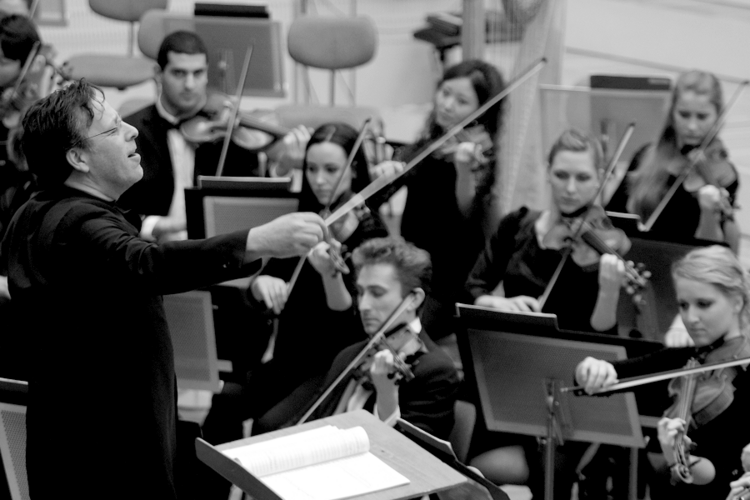MAHLER 2
Sunday, 7th February 2016, 8 pm
Philharmonic Hall Berlin
CHARLES IVES: THE UNANSWERED QUESTION
(Markus Mokosch, trumpet)
GUSTAV MAHLER: SYMPHONY NO. 2 in C-minor (AUFERSTEHUNGSSYMPHONIE)
Laura Claycomb, soprano
Lioba Braun, alto
Sing-Akademie zu Berlin
Men of the State and Cathedral Choir Berlin
(Direction: Kai-Uwe Jirka)
Berliner Singakademie
(Direction: Achim Zimmermann)
Symphony Orchestra of Berlin University of the Arts
Steven Sloane, conductor
Tickets at Reservix and the concert hall box office of the UdK Berlin, Hardenbergstraße/corner of Fasanenstraße, opening times: tues–fri 3–6 pm
Tel.: 030 3185 2374 (answering machine), E-Mail: udkkasse@udk-berlin.de
Gustav Mahler not only needed a longer time to compose his second symphony, it also has lavish instrumentation: besides the big orchestra and an offstage orchestra, there are two soloists and a mixed choir. A large-scale and at the same time magnificent project, which Steven Sloane, professor of conducting at Berlin University of the Arts and the Symphony Orchestra of the UdK Berlin included in their plan for February 2016. The Sing-Akademie zu Berlin was enlarged with supporting voices from the men of the State and Cathedral Choir Berlin and the Berliner Singakademie. Laura Claycomb and Lioba Braun were engaged for the solo parts.
Almost exactly 120 years before this concert, the world premiere of the entire symphony took place in Berlin under the direction of the composer. It clearly posed rather too much of a challenge for the audience, the critics, and even some colleagues. Brahms, however, referred afterwards to Mahler as the “king of the revolutionaries”. Today Mahler's Second is a firm component in major orchestras' programmes, even though the dimensions – the instrumentation as well as the length (c. 90 min) – still seem uncommonly large.
Like most of Mahler's symphonies, the second also follows a concept regarding content. Starting out from the extended “Totenfeier”, the first movement, which can also be played alone in a concert setting, it leads to the triumphal “Auferstehungssatz”. This is the source of its commonly used name, the “Auferstehungssinfonie”. Here, Mahler set a poem by Klopstock to music, ending with the words “Aufersteh'n, ja aufersteh'n wirst du, mein Herz, im Nu!” (Rise again, yes, rise again, Will you, my heart, in an instant!) And so this statement may be heard as an answer to the unanswered question by Charles Ives, which was played at the start of the concert.
